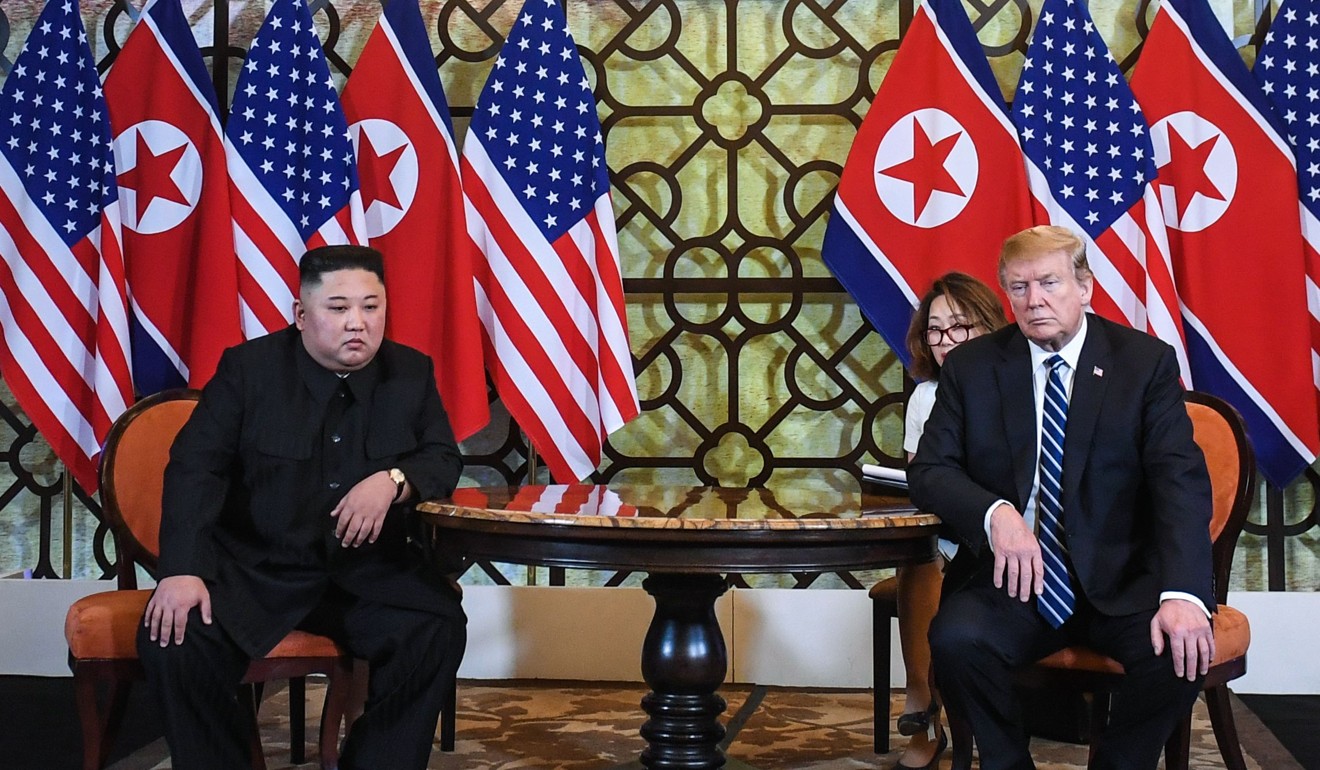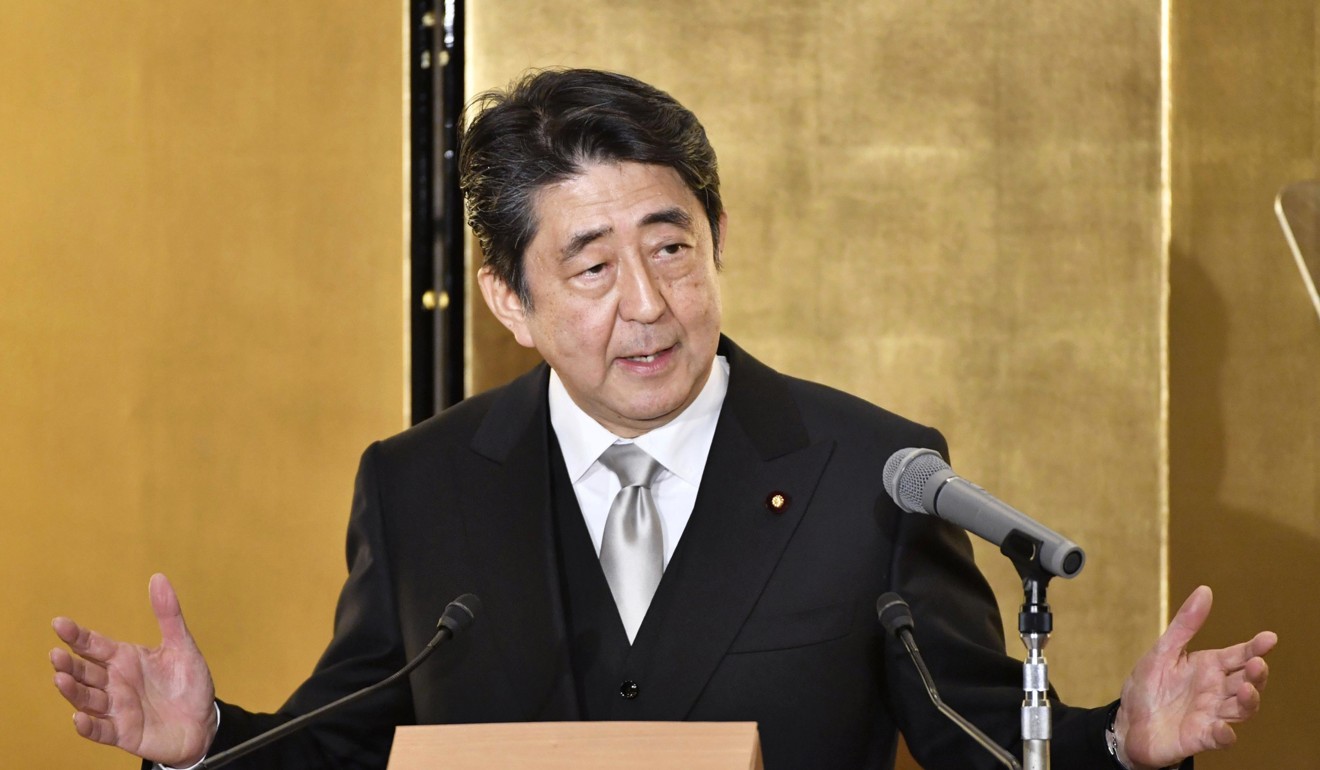
What the ‘hiccup’ in the Trump-Kim bromance means for the new power dynamic in East Asia
- The pathway to a unified ‘Korea’ remains viable, and with it important economic implications that few realise
- The Trump-Kim talks should be seen as adjourned rather than terminated
- China has too much to lose from disrupting a peace process that has been developing very much to its advantage
What does the abrupt termination of the Trump-Kim talks in Hanoi on North Korea mean for the future of East Asia’s economy? There will be much analysis of the strategic implications of the dialogue’s collapse but probably little on the economic fallout. Yet it is of great importance to this region.
On the face of things, the failure of negotiations (at this stage at least) suggests that changes in the balance of economic power that have been underway for some time in East Asia will be slowed, and that China’s ascent in this regard may not be as rapid as it was shaping up to be before Hanoi.
The breakdown of the talks took most people – with the exception perhaps of the most hardened North Korea cynics – by surprise. I for one had already penned a column in the expectation that there would be some further progress in Hanoi even if still stronger on symbolism than on substance.
The pre-Hanoi scenario was that economic cooperation between North and South Korea would accelerate, with some UN sanctions against Pyongyang being dismantled even if political unification of the two halves remained some way off. “Korea” would become a significantly more powerful economic player.
North and South would also become more closely integrated into the Chinese economy. The economic bounds of “Greater China” (meaning mainland China, Hong Kong, Macau and Taiwan) were poised, it seemed, to become greater and wider still as the two Koreas were drawn further into China’s sphere of influence.
Rapprochement among Seoul, Pyongyang and Washington ostensibly would be good for everyone with the prospect it brings of peaceful coexistence and an end to the East Asian cold war. But for Japan there was a looming risk of being left out in the cold by the gathering forces of unification.
All this may yet come to pass and whatever the short term impact of the “failure” of the Hanoi talks, the longer term forces that are at work in this region are unlikely to be deflected. It seems extremely unlikely meanwhile that things will revert to the status quo ante.

It is probably best to see the Trump-Kim talks as being adjourned rather than terminated, even though President Donald Trump did say in Hanoi that there were no further plans at this stage for a further summit. The impression was of a negotiating hiccup rather than an end of engagement.
North Korean leader Kim Jong-un may have overplayed his hand by insisting on an end to all economic sanctions against his country (if that is what he really did do). And Trump who sees himself a consummate exponent of the “art of the deal” may have judged that Kim will lower the stakes if he risks losing.
The chances are that Pyongyang will find a way to signal to Washington that it is prepared to come back to the table if ways can be found to save face. And (provided he survives politically) Trump could brush off Hanoi as a disagreement among “friends” – and go on to collect his Nobel Peace Prize.
China will no doubt react with caution and restraint. Beijing has far too much to lose from disrupting a US-North Korea peace process that has been developing very much to China’s advantage in recent months. Probably the full economic implication of this has escaped many people.
There is already agreement between South Korean President Moon Jae-in and North Korea’s Kim that linking the two by means of a modern road and rail system would give them both direct overland access to China and, more importantly in the long run, to Europe via China’s Belt and Road Initiative.
It is impossible to believe that the two Korean economies would not become more closely integrated generally as a result, even if the form of ultimate political cooperation is not yet fully discernible. Currently their combined GDP is around a third of Japan’s but that could change dramatically.
As president Trump said during his summit with Kim in Hanoi, North Korea’s economic potential is “awesome” if only the context can be created for it to be exploited. It derives from possession of a wealth of mineral and other natural resources all crying out to be made into high value added goods.
In past decades, before China’s economic modernisation, it was assumed that if and when North Korea did emerge from its “hermit” state, the US, Japan and Europe would finance this transition. But China has become much richer and its infrastructure can easily integrate with that of the Koreas.
The two Koreas, or eventually a unified Korean nation would wish to remain at arm’s length politically from China and presumably to stay on good terms with the US and Europe. But there is little love lost between either of the Koreas and Japan, so it is hard to envisage any Korea-Japan alliance.

With present policies, Japan may thus find itself rather lonely in East Asia, especially if Donald Trump continues to put bilateral deal-making ahead of traditional ties and “special relationships.” Some in Japan are already beginning to contemplate what would happen under such scenarios.
Japan may be tempted to adopt an “I told you so” attitude toward the breakdown of the Hanoi talks and Prime Minister Shinzo Abe to snuggle even closer than he already imagines himself to be to US president Trump, especially now that Trump has had a tiff with “Rocket-man” Kim.
But the emergence of a China-Koreas economic alliance is posing a major challenge to neighbouring Japan and that is unlikely to go away. It may even be accelerated if the two Koreas and China come to view their mutual relationship as being more reliable than that with Washington. The course of economic history has been delayed but likely not diverted.
Anthony Rowley is a veteran journalist specialising in Asian economic and financial affairs

